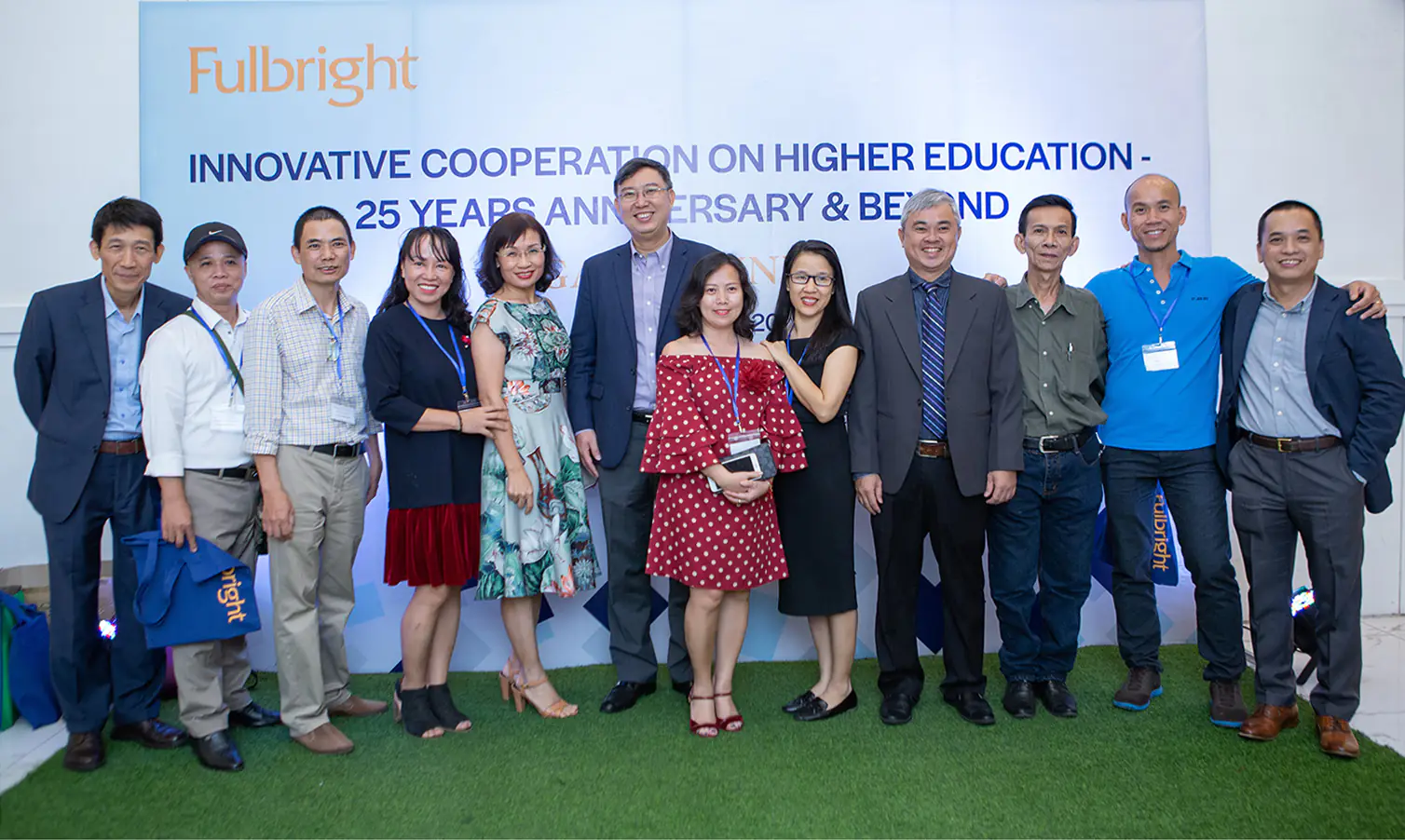
Thirteen years ago, Tran Mien Chi, who graduated from a Construction Engineering major, finished her graduate program at the Fulbright Economics Teaching Program (FETP). The program served as a launchpad for her academic journey. Today, she is a lecturer at the School of Economics and Finance, Queen Mary University, London.
Chi was a student of Ho Chi Minh City University of Technology’s construction engineering concentration, but worked as a banker at Bank for Investment and Development of Vietnam (BIDV) after graduation.
After several years at BIDV, she decided to pursuit her graduate education in economics. Looking at her options, she felt discouraged when she discovered she had to register for an undergraduate program at the University of Economics, HCMC before she could join their economics graduate program. She would require six years to reach her goal.
Fortunately, a BIDV colleague introduced her to FETP. At the time, FETP was a partnership between the University of Economics, HCMC and the Harvard Kennedy School, USA. It immediately clicked for Chi.
“FETP is the only school that does not require you to graduate from an Economics major to be accepted. I did not have the basics of economics like my classmates. Which is why, after being chosen for the master’s program, I had to take foundational courses before taking the main courses. But after just over a year, I had managed to acquire my master’s degree.
This was no walk in the park, as Chi emphasized. That one year at FETP pushed her beyond her limits until she reached her goal.

Dr. Tran Mien Chi
“Although I was familiar with academic stress from my previous experience at the HCMC University of Technology’s Construction Division, one of the most stressful concentration with a lot of projects and techical drawings, I was still overwhelmed by the experience at FETP,” she explained.
The obsessive 8:20 deadline
Chi took the Applied Economics and Public Policy program at FETP, a set of 17 courses with a total 74 credits, compressed in a 10-month timeline. a master’s program in the UK, in comparison, only consists of 8-10 courses for the same period.
“This simply illustrates the academic stress at Fulbright. My classmates and I spent many sleepless nights reading through meter-high piles of documents just to find the statistics we needed, then calculated and analyzed them until we finished our assignments before the 8:20 a.m. deadline,” Chi recalled.
The night preceding each deadline, lights were always on in the classrooms as students gathered in groups to discuss before they reached their conclusions. At the same time, students also had to read the documents for their courses before attending class so they could debate with the lecturers leading the class. The discussions are considered one of the criteria to measure students’ performance in the course, so all students joined with enthusiasm.
When asked about her memories at FETP, Chi mentioned the Case Study for Policy Analysis course in which she received a “pretty bad” score for her discussion summary.
“I read my assignment many times and I could not understand where I had gone wrong because I thought it was pretty good. I decided to seek justice and confront the lead lecturer. After that, I learned how to write ‘right’ before writing ‘well’. It was the first time I was introduced to critical thinking in policy analysis,” she explained.
Fulbright students are recommended to consider and analyze a problem from various perspectives, both positive and negative. They have to weigh between financial benefits and social benefits, between limited resources and outcomes. All of their analysis is meant to reach a conclusion or a proper policy that can benefit many parties of a project.
“Critical thinking is one of the important skills that I learnt from Fulbright school. This skill helped me score 90/100 in my assignments during my postgraduate education in the UK. Consequently, I was granted a full scholarship to pursuit the Ph.D Fellowship Program in Finacial Risk Management in the UK,” Chi said.
The environment for the free-minded
For Chi, the Fulbright School of Public Policy and Management (FSPPM), which succeeds FETP, is a success story that demanded the right direction, the right people, and the right investment.
Based on the liberal arts model, the school developed its teaching and learning framework with case studies paired with quantitative and qualitative analysis to provide students with the capacity to judge, give feedback, and make decisions. Students are fully equipped with the knowledge and skills they will need to work effectively in any environment.
“This is one of the most important distinctions of the Fulbright school, demonstrated by a network of alumni who are highly successful in their careers in all sectors, inside and outside of Vietnam,” Chi said.
Indeed, Chi noted, what makes Fulbright school great is not only the faculty, but also the students.
“You should be proud if you pass the strict application process and the entrance exam to become a Fulbright student. Each student is like a good seed that can absorb the best nutrients to grow into the best tree,” she emphasized.
She also praised the advanced infrastructure supporting students at Fulbright school. “Students can get access to the latest documents on the school’s online library. You are instructed to use the most updated software so that the study and research achieve the best outcomes,” Chi explained.
The liberal arts philosophy at Fulbright helps train “free-minded” people, in terms of skills and mindset. Students are especially introduced to problem-based learning, a student-centered approach in which students learn about a subject by working in groups to solve an open-ended problem. This problem is what drives the motivation and the learning.
“I believe Fulbright is one of a few schools using this learning approach effectively. I have to emphasize the word “effectively” because this approach does not only require thorough preparations for case studies’ documentation but also the capacities of instructors to do research and explain with deep insights so that students can understand a project from various perspectives. As a result, students can actively analyze, judge and make decisions on a complicated problem. All of these things are taught at Fulbright,” she elaborated further.
Chi also appreciated how each student at Fulbright received the best support from the faculty and staff when facing difficulties, whether they be psychological, financial, or academic.
“The important thing is to never stop learning. Then you will receive the best from Fulbright school,” she concluded.
Xuan Linh







